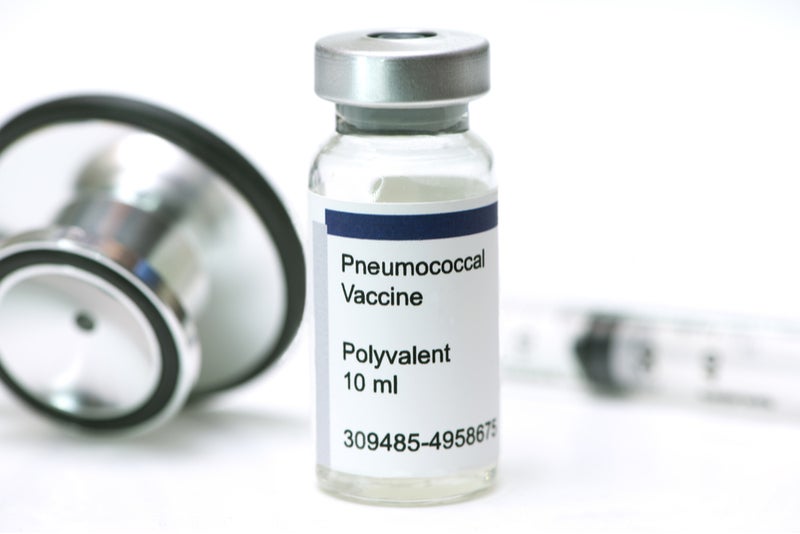Pneumococcal disease, defined as infections caused by the bacterium streptococcus pneumoniae, has long been a source of morbidity and mortality, particularly in infants and the elderly. Importantly, rates of pneumococcal disease have been significantly curtailed, largely in developed regions, due to the availability of prophylactic vaccines. These vaccines come in two varieties: polysaccharide vaccines and pneumococcal conjugate vaccines (PCVs).
Polysaccharide vaccines are based on cell capsule sugars of pneumococcal bacteria; this is the basis of Merck’s Pneumovax 23. While offering protection against 23 serotypes of pneumococcus, polysaccharides are generally poorly immunogenic; Pneumovax’s efficacy in children under two years of age is low enough that the vaccine is reserved for adults. Prevnar 13 (Pfizer) is composed of cell capsule sugars conjugated to a diphtheria carrier protein, which helps boost immunogenicity. While protecting against fewer serotypes than Pneumovax 23, Prevnar 13 offers more robust protection and is the vaccine of choice for infants in nearly all geographies, recording sales of $5.8bn in 2018, making it by far the best-selling vaccine worldwide.
A phenomenon known as “serotype replacement” occurs for pneumococcal and other diseases wherein, after the introduction of a vaccine into a population, the serotypes in the vaccine become responsible for fewer cases of disease due to that serotype, but are replaced either by serotypes not included in the vaccine, or serotypes included in the vaccine but for which the vaccine was ineffective. It should be noted that both the Prevnar and Pneumovax brands started out with fewer serotypes, seven and 14, respectively, and saw serotypes added to account for serotype replacement. This has also been seen with human papillomavirus (HPV), as Gardasil saw an increase from four to nine serotypes, resulting in an increased breadth of protection, growing from 70% of cancer-causing serotypes to 90%.
Merck and Pfizer are both developing next-generation PCVs, with Merck’s candidate (V-114) being slightly ahead of Pfizer’s (20vPnC) in terms of development, but offering protection against fewer serotypes (15 vs. 20). Perhaps the most important considerations for these agents is the difference in the number of serotypes protected against relative to Prevnar 13, which is 2 and 7, making Pfizer’s candidate significantly more attractive. Experts interviewed by GlobalData report that while two extra valences are beneficial, their importance is highly dependent on geography, with these serotypes not being considered of high importance in some countries. In some countries, it simply may be of limited benefit to switch.
Absent data suggesting that Merck’s offering is more efficacious, it is difficult to conceive of a reason to use V-114 when Pfizer has a similar offering with a wider breadth of protection. V-114 will likely reach the market before 20vPnC, however owing to its minimal increase in protection over Prevnar 13 coupled with a more narrow range of protection than 20vPnC, any success this agent sees will likely be temporary.
Related Reports

US Tariffs are shifting - will you react or anticipate?
Don’t let policy changes catch you off guard. Stay proactive with real-time data and expert analysis.
By GlobalDataGlobalData (2019). Takeda’s TAK-003 Achieves Phase III Primary Endpoint, Putting Dengvaxia on Even Thinner Ice, January 2019, GDHC2233EI
GlobalData (2018). EMA Approval of Dengvaxia, Though Positive, Will Not Reverse Its Dwindling Commercial Prospects, December 2018, GDHC2187EI
GlobalData (2018). Travel Vaccines: A US and European Perspective, May 2018, GDHCHT002





